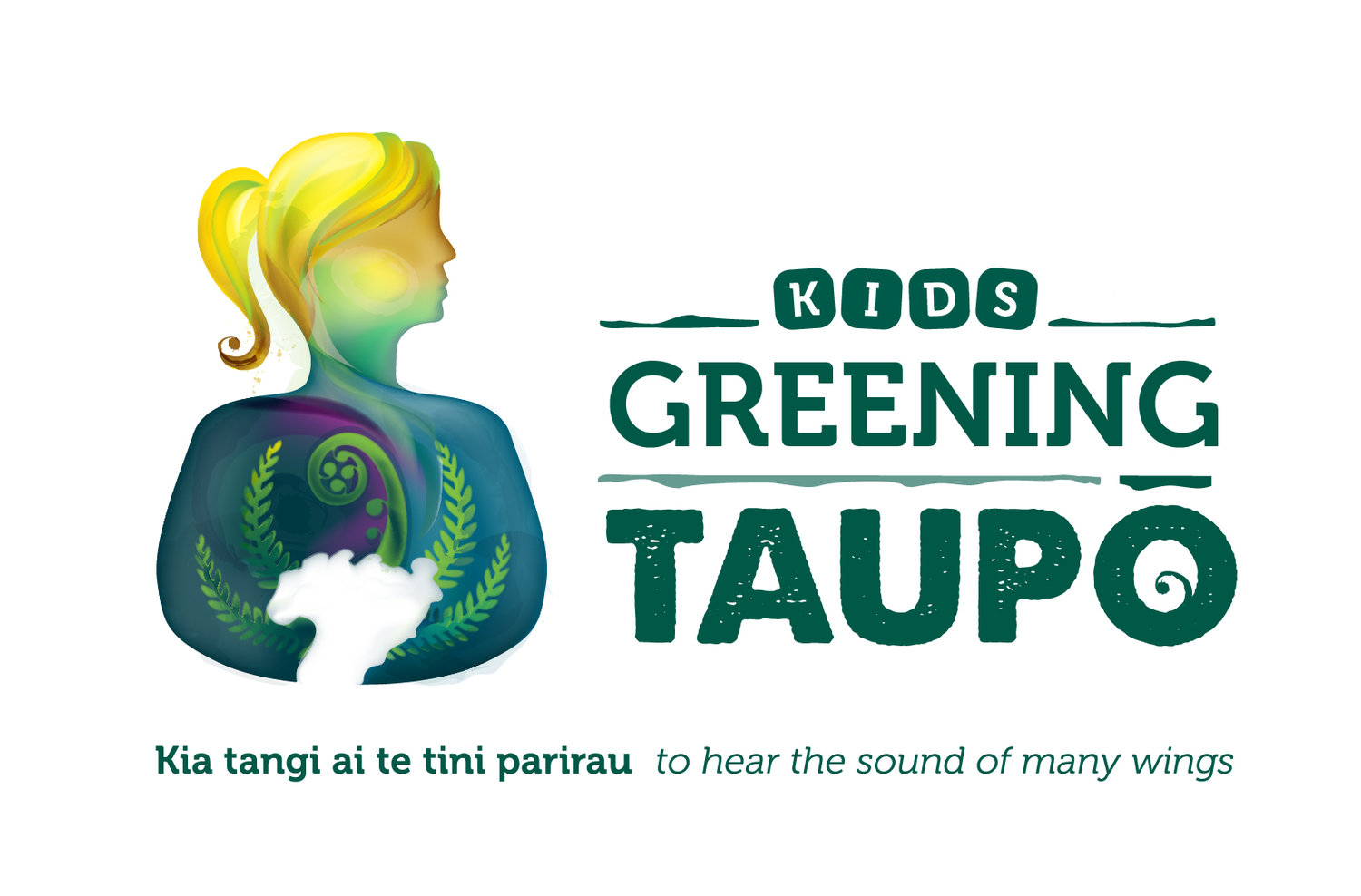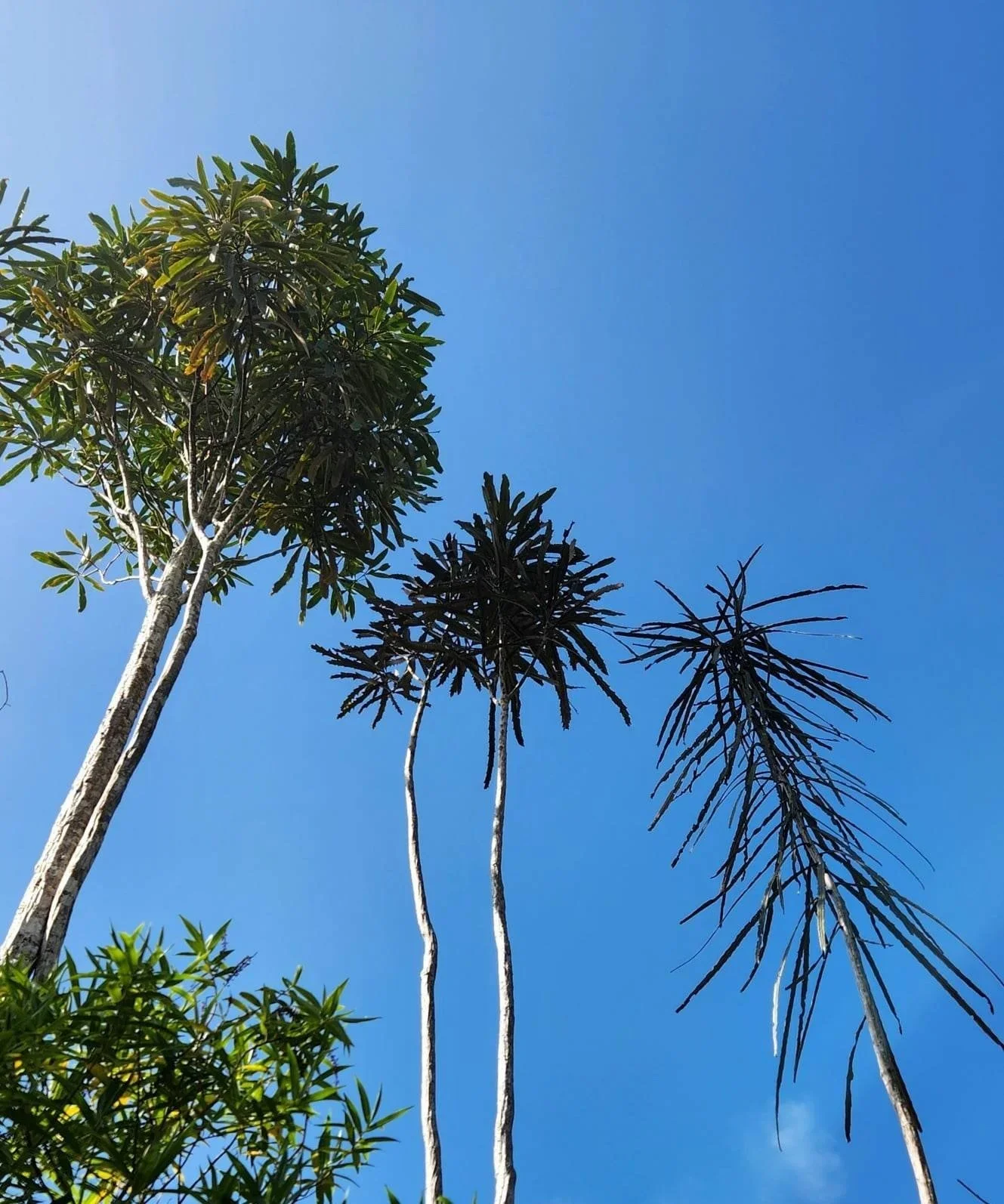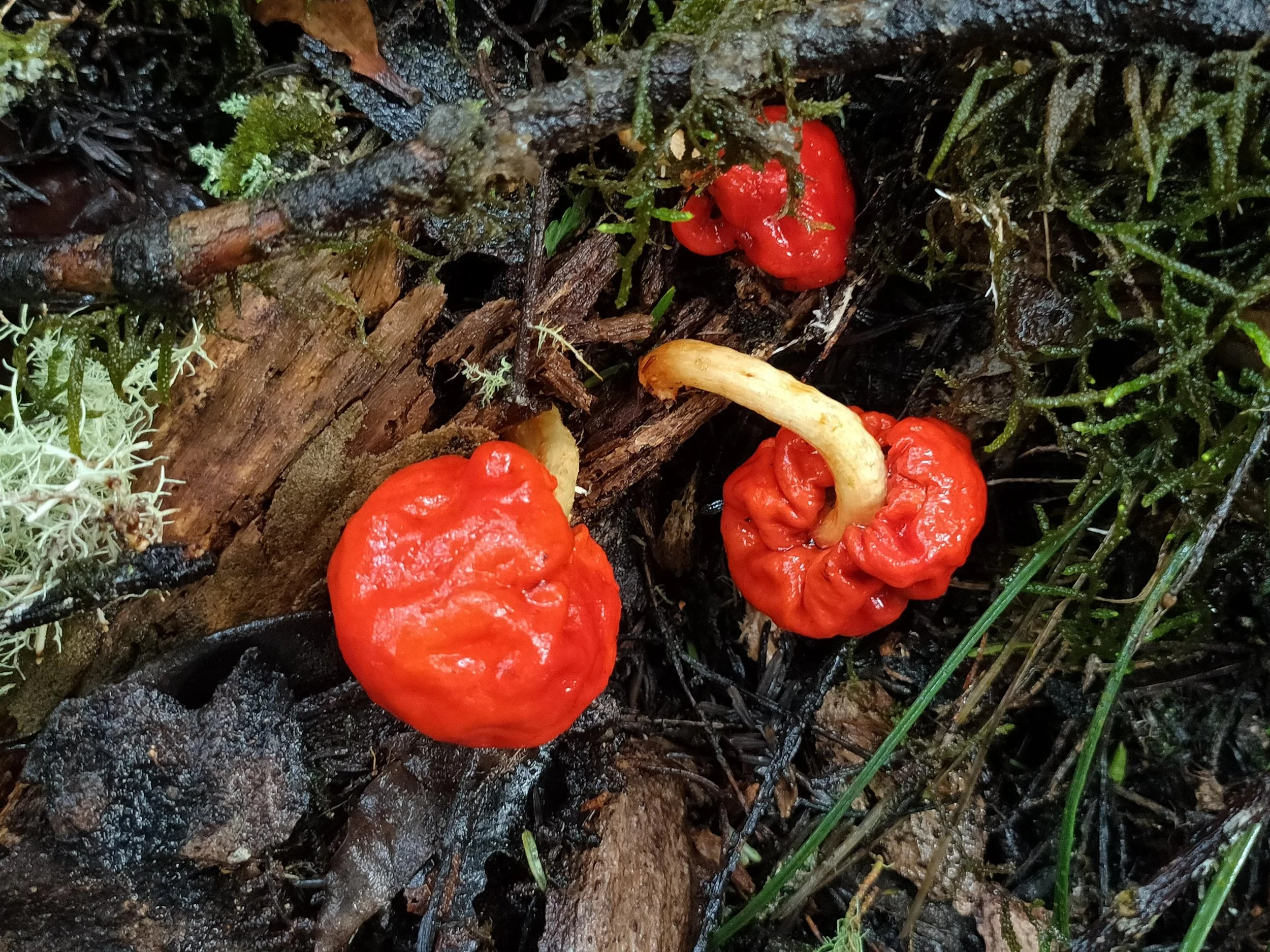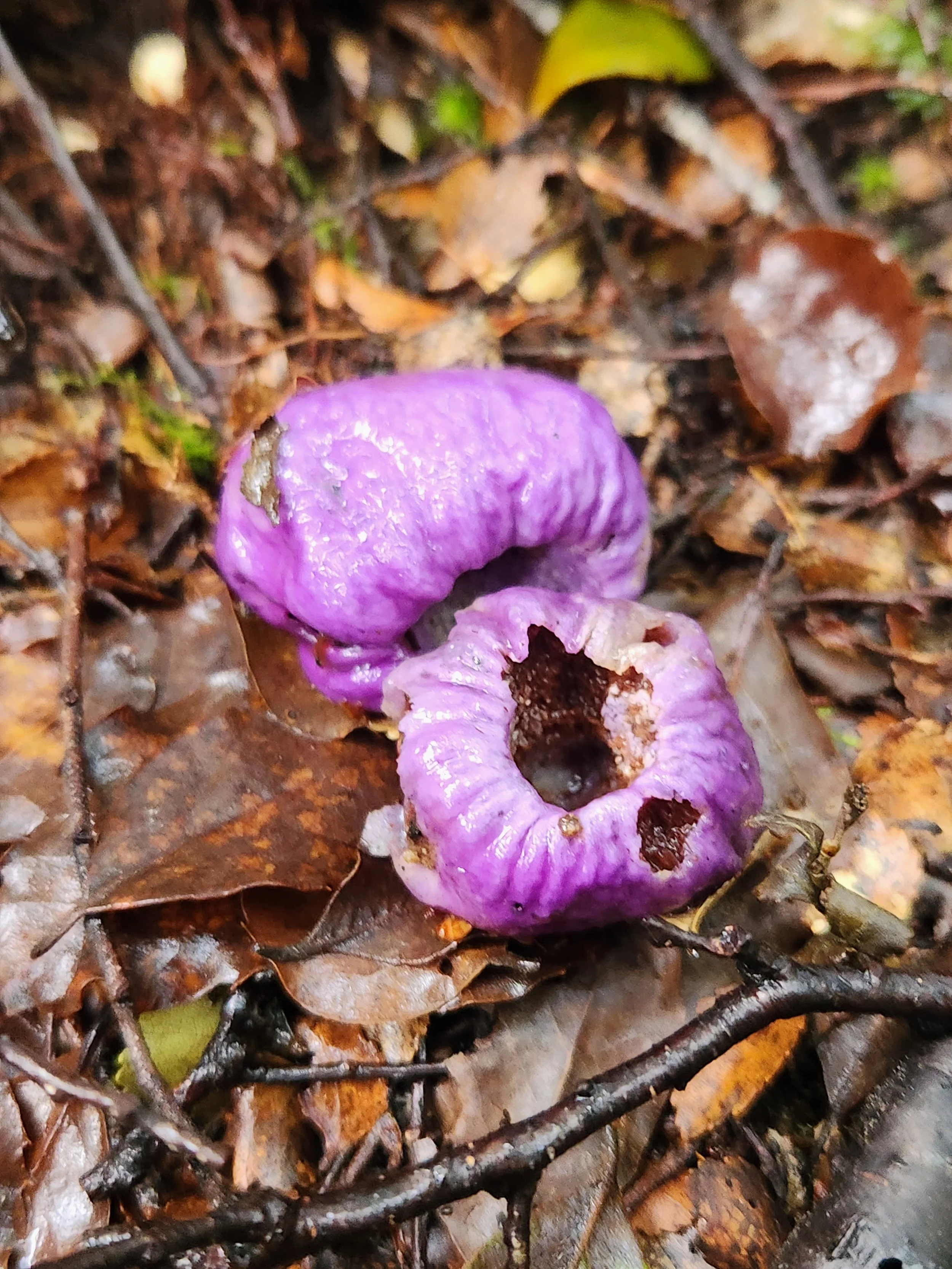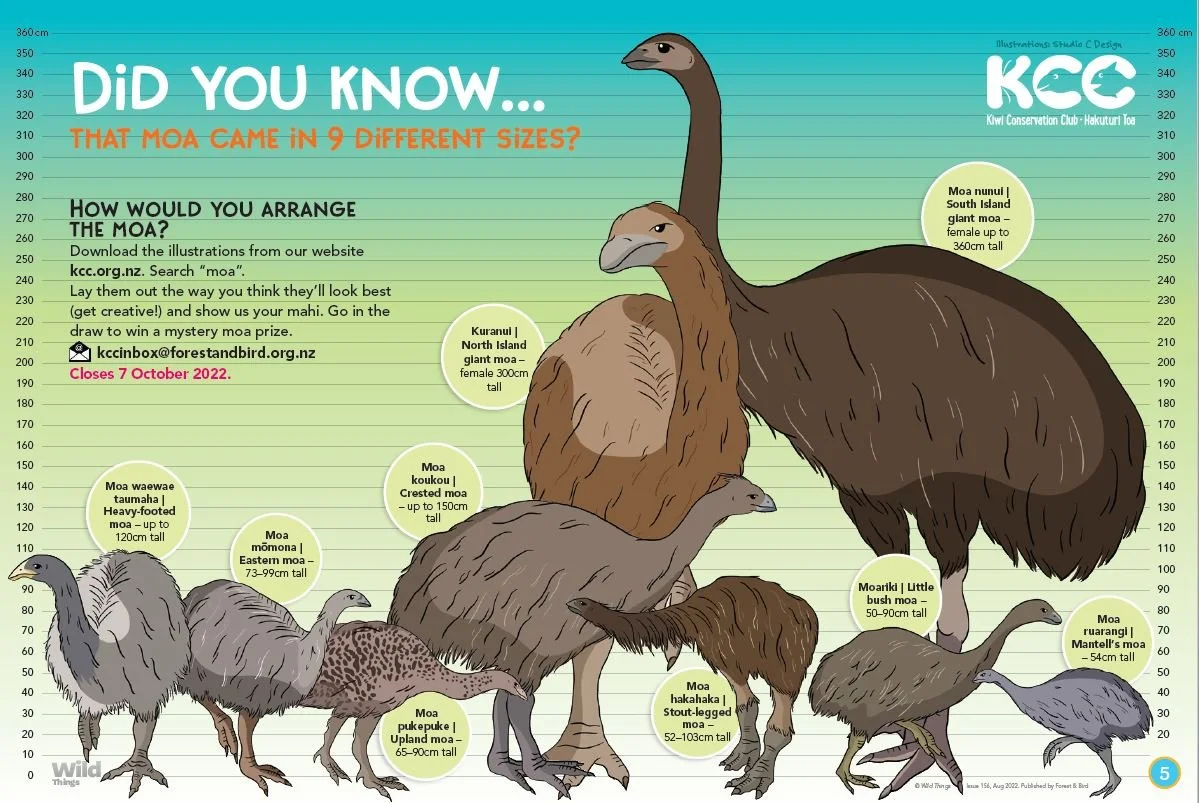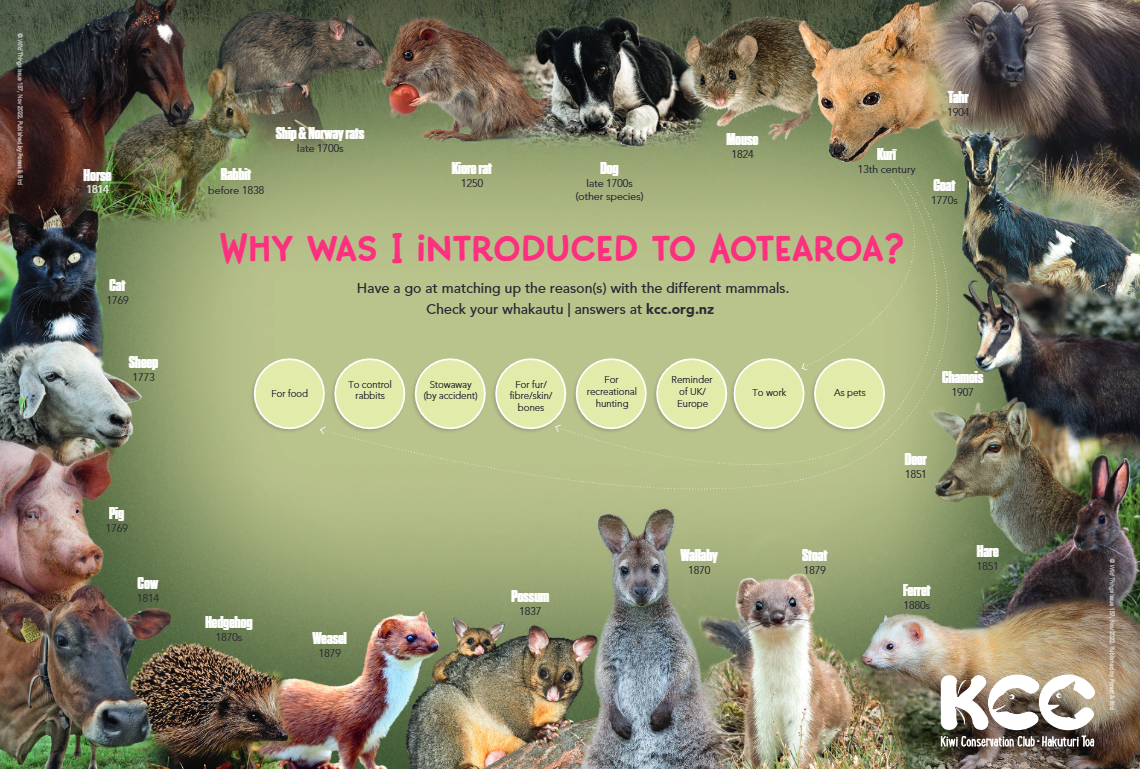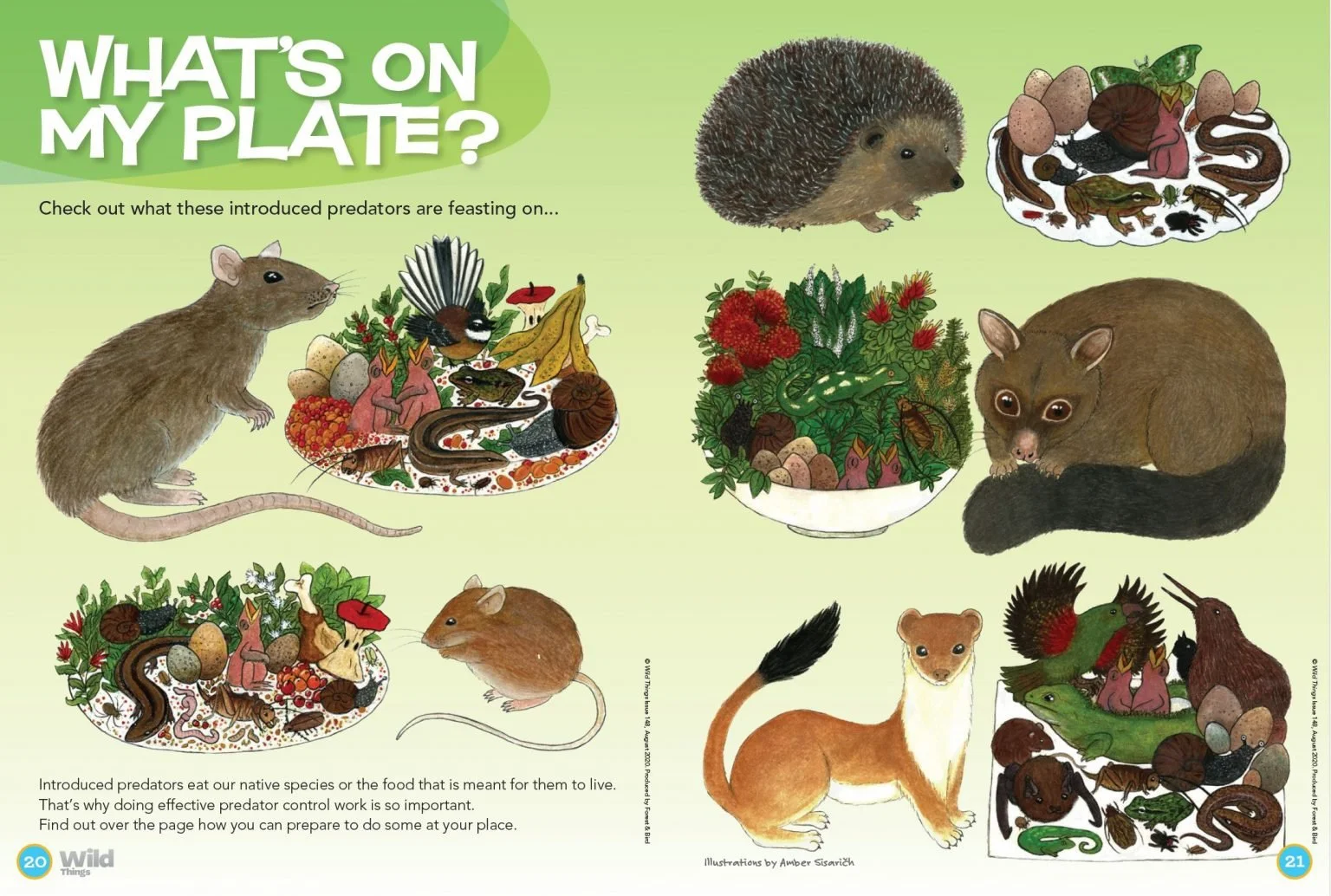Learn About Introduced and Native Browsers
The forests of Aotearoa have always had browsing animals (animals that eat plants). They are an important part of the ecosystem, spreading seeds and spores, providing nutrients for plants through their droppings, and helping keep the plants in balance. Over millions of years, our native plants evolved with moa and other large birds as their main browsing animals, as we do not have any native land mammals, apart from tiny bats. Many of the plants adapted to be able to survive moa by having small leaves on divaricating (tangly) branches when young and then changing to lush green leaves as they reach a height that was safe from moa. Horoeka (pictured) has tough spiky leaves that point down until it is above moa height. Then the leaves soften, become shorter and greener, and point upwards. In the Chatham Islands there were never moa, and their species of horoeka doesn’t have this juvenile (young) phase. Want to know more? You can read this awesome article about all about our unique plants here. These defences do not work against the browsing mammals that have been introduced. Deer, rather that eating individual leaves, they will wrap their tongue around the entire plant and pull it out. Rabbits love eating juvenile horoeka, the hard spiky leaves do not deter them at all!
It is not just our plants that rely on browsing birds to help them to spread, species of fungi do too. Aotearoa’s colourful pouch fungi, pictured below, looked like berries to moa and other large birds. These birds would eat them and disperse their spores (like seeds of fungi) through their droppings. Unfortunately, these spores don’t survive traveling through the gut of mammals such as deer and possums. Read more about the relationship between moa and pouch fungi here.
PDF and other information- https://kcc.org.nz/portfolio/arrange-a-moa/
Sadly, after the arrival of humans and the introduced mammals that came with them, many native species that spread seeds and spores became extinct, including all species of moa. Other species, such as kākāpō now only survive on predator free islands or in sanctuaries. The new browsing animals that were introduced by humans, such as possums, wallabies, rabbits, goats, deer and pigs had no natural predators here to keep their numbers in control and they spread quickly through the country. For example, it is estimated that we now have 70 million possums in Aotearoa, over 15 per person! Our plants and fungi that had evolved over millions of years to survive moa had no time to adapt to survive these browsers and they are easily eaten by them.
These 70 million pairs of jaws consume something like 21,000 tonnes of green matter every 24 hours—the equivalent of a big container ship full of leaves, young shoots, berries, flowers and grasses departing from our shores every night. -New Zealand National Geographic
The infographic below is from KCC magazine. We think it does a great job of explaining the differences between having moa in our forests eating the plants, and having deer in the forests.
Deer, pigs, goats, rabbits, wallabies, and possums have had a huge impact on our forests and the biodiversity that lives within them. In many forests in Aotearoa the understory has been destroyed. Young trees are eaten before they have a chance to grow. From the outside, these forests of large trees look healthy, but as the older trees reach the end of their lives and die, we will begin to notice that there are no trees coming through to replace them. If you can see nothing but horopito and crown ferns (two species of plants that are not liked by deer) growing on a native forest floor, that is a sign of mammalian browsers impacting the ecosystem. Deer ringbark trees to get sugar from the bark, possums will eat all of the leaves on a tree until it dies then move on, pigs dig up the ground destroying the understory. The pictures below, taken in forests around Taupō, show this damage. Have you noticed any of these things?
Possum browse - Whauwhaupaku (Five Finger) leaves are pulled off by possums that chew the stems and eat the fruit. Look how many leaves were on the ground from one night’s browsing in the photos below! You can see the damage to the tree too. Possums do not only eat plants. They will also eat eggs, chicks, lizards and there is even a video of a possum taking on a fully grown kiwi!
Deer browse- See trees ringbarked by deer and areas of nothing but horopito and crown ferns in the photos below. Deer can destroy the understory of a forest, eating all of the young seedlings that are trying to grow. They can eat rare alpine plants too.
Pig rooting - pigs have dug up the understory trying to get to the roots of the plants. The cage that you can see in the middle photo was protecting a rare plant called dactylanthus. It has been pushed over and the threatened plant destroyed. Pigs love warm geothermal areas and can destroy the rare plants that live in them too. They may also spread weed plants and fungi such as kauri dieback. Like possums, pigs also eat other animals. They will eat dead possums and rats under traps, but they will also eat live prey such as lizards, kōura, kauri snails, peripatus (velvet worms), and frogs. This NZ Geographic article mentions some disturbing statistics, including the contents of one pig’s stomach containing 56 endangered native frogs.
Watch the video below, then read all abut wallabies and their impact here.
Below are some fantastic resources from Kiwi Conservation Club. Please go to the original source in the caption to print off the PDFs.
Answers and PDF- https://kcc.org.nz/portfolio/why-was-i-introduced/
